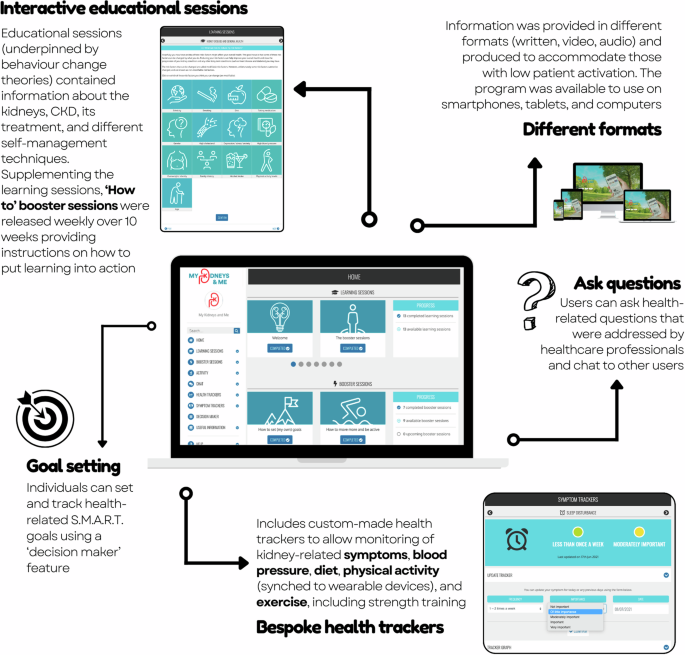This study investigates the effectiveness of a digital intervention called My Kidney My Life (MKM) for improving kidney disease self-management in adults with chronic kidney disease (CKD). Here are the key findings:

Strengths:
- The study used an internal pilot design to assess feasibility and acceptability, which is essential for developing a pragmatic clinical trial.
- A large proportion of participants (52%) still using the program at 20 weeks suggests that engagement with MKM was ongoing.
- The study highlights the benefits of MKM for individuals with low pre-existing activation levels.
Limitations:
- The study was limited by high attrition rates, with 47% missing data by the primary end-point (20 weeks).
- The small sample size may have underestimated the effects of the intervention, particularly if participants were highly motivated early in the trial.
- The participant population was predominantly white and well-educated, which limits generalizability to other populations.
Key Findings:
- MKM did not improve patient activation levels above usual care. However, high levels of patient activation levels were associated with better self-management behaviors and improved health outcomes when used by individuals with low pre-existing activation levels.
- Increased use of digital technology was linked to improved self-management skills in patients with CKD.
Future Directions:
- Refine MKM to increase uptake and engagement among disadvantaged and underserved groups, such as those from minority ethnic backgrounds or with lower digital literacy.
- Implement MKM into routine practice to assess its accessibility and effectiveness in real-life settings.
- Develop strategies to engage hard-to-reach populations in digital health interventions.
Implications:
- CKD self-management requires high levels of patient engagement and activation, but individuals with low pre-existing levels may still benefit from interventions like MKM.
- Digital technology can be an effective tool for improving self-management skills in patients with CKD.
Overall, this study highlights the potential benefits of digital interventions like MKM for improving CKD self-management, particularly among disadvantaged populations. However, further research is needed to refine MKM and ensure its accessibility and effectiveness for diverse populations.
